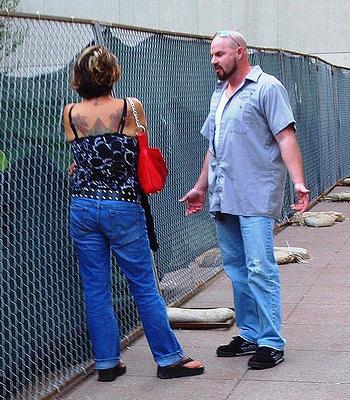An authentic attitude of compassion doesn’t change, even faced with another person’s negative behavior. – Dalai Lama
What does that mean?
To me, it says that it’s easy to have what might be called conditional compassion. Compassion for certain people or certain groups of people. And a lack of compassion for other people or groups of other people. And it also might change depending on the situation, with statements like “they deserve what they got.” While that might be true, we should still have compassion in our hearts.
To me, an authentic attitude of compassion means that it applies to everyone in every situation. It is (at least for me) incredibly difficult to do. Even absent negative behavior (presumably directed towards me), I can have difficulties even feeling (much less showing) compassion towards some people.
Why is authentic compassion important?
Having that authentic, deep rooted compassion is the key to this saying, and the test is how it withstands the negative behavior of the other person. Can you still feel (and show) compassion, even after they have done something mean or hurtful? That’s a test I regularly fail, but I’m trying to get better.
Lack of compassion can harden the heart and can form a callous on our soul. It helps to cheapen life and all to make all human interactions more difficult. It dulls the brilliant colors of life and mutes the beautiful music that accompanies it.
Having compassion that has an expiration date or a limit per person per day, or has conditions attached, that’s better than nothing, but still could use some improvement.
Where can I apply this in my life?
Think of the most annoying person you know. Not mean, just annoying. Perhaps it’s how they laugh, how they talk (all the “ummmm’s” and “like” and “ya-know’s”) or whatever it might be.
Now take a moment and imagine that they had absolutely no control over whatever is so annoying to you. They were born that way, raised that way or just dropped on their head as a baby. Do you feel a little more compassion towards them?
Now imagine it was you that was annoying. I know, it’s hard to believe, after all, you have hardly a flaw at all! Just imagine there are other people who were raised by barbarians, and don’t appreciate all of your finer qualities. To them, you are annoying. Does being in someone else’s place help you feel their pain, and increase your capacity for compassion towards them?
Imagine how awful it would feel to annoy most of your friends unknowingly. Wouldn’t you want them to point it out and help you be less annoying? I know I would (eventually) appreciate such help. How about you?
Now, have you got a clue where this is going? What if the person you find annoying is unaware that what they are doing is annoying to others? Perhaps it’s a cultural thing. Not all cultures bathe as often as you might like. Your friend probably isn’t allergic to water, they just don’t know that the “natural scent” isn’t big with you. If you don’t tell them, how will they learn?
That is all for the passive annoyances. That’s the warm-up for the people with who are actively annoying or having other negative behaviors.
How would you feel compassion towards someone who is yelling at you? I’ve been on both sides of that, so it was easy to put myself in their shoes, and remember a time when I was similarly unskillful and hotheaded.
If you’ve never been been in that situation before, perhaps you know enough about the person to understand where they are coming from, and feel compassion for them based on the problems in their life and how they have learned to cope (however poorly that might be).
The end result is still the same, you need to work on having compassion for them despite their behavior. It is rarely easy, but then neither is the 15 repetition at the gym. But in each case, that’s where the real building begins. The easy stuff doesn’t build strength (of body or of character) nor does the first repetition.
Keep working on your compassion in the tough situations. Realize that there will be times when the situation will be more than you are able to handle. Note your present limit and work to break through it and get better.
And as always, there is one last step. It’s an especially big stretch for the folks who are being so negative, but you should try to help them. Right at that moment might not be the best time, but try to reach them when they are in a better place. Skill and familiarity helps when broaching the subject, so you might want to enlist help from someone who is more skilled or more familiar with the situation.
It’s a tough world, and we’re all facing our own troubles. Try to remember this the next time you find yourself dealing with a person who’s in a very negative place.
From: Twitter, @DalaiLama
confirmed at : it’s his own feed…
Photo by TheeErin








I had to sane situation happen. They tell me, show me, I observe them of sadness. I talk to them about to help them but that didn’t work, I guide them to a place to go but they will not go. So I told everyone who I know about the situation so they can help them, but they extremely mad about, to a point they don’t me in there lives anymore. I got confused, why would you ask and tell me you need help, but when I give you help they act two faced. Then its my fault I guided them to get help for them. After I played guilty of myself for helping them, I realize I help them. it wasn’t me its them not taking the responsibles for themselves, on needing help
There are many people in need of help, but who do not want that information to be known. That is sad, but it happens some time.
From their point of view, they trusted you, and you betrayed them. Sometimes their pride or their ego gets in the way.
But as long as you did your honest best, I believe the problem remains theirs. Do what you can to help, but understand that some will not accept it.
Pingback: Always forgive your enemies… | philosiblog